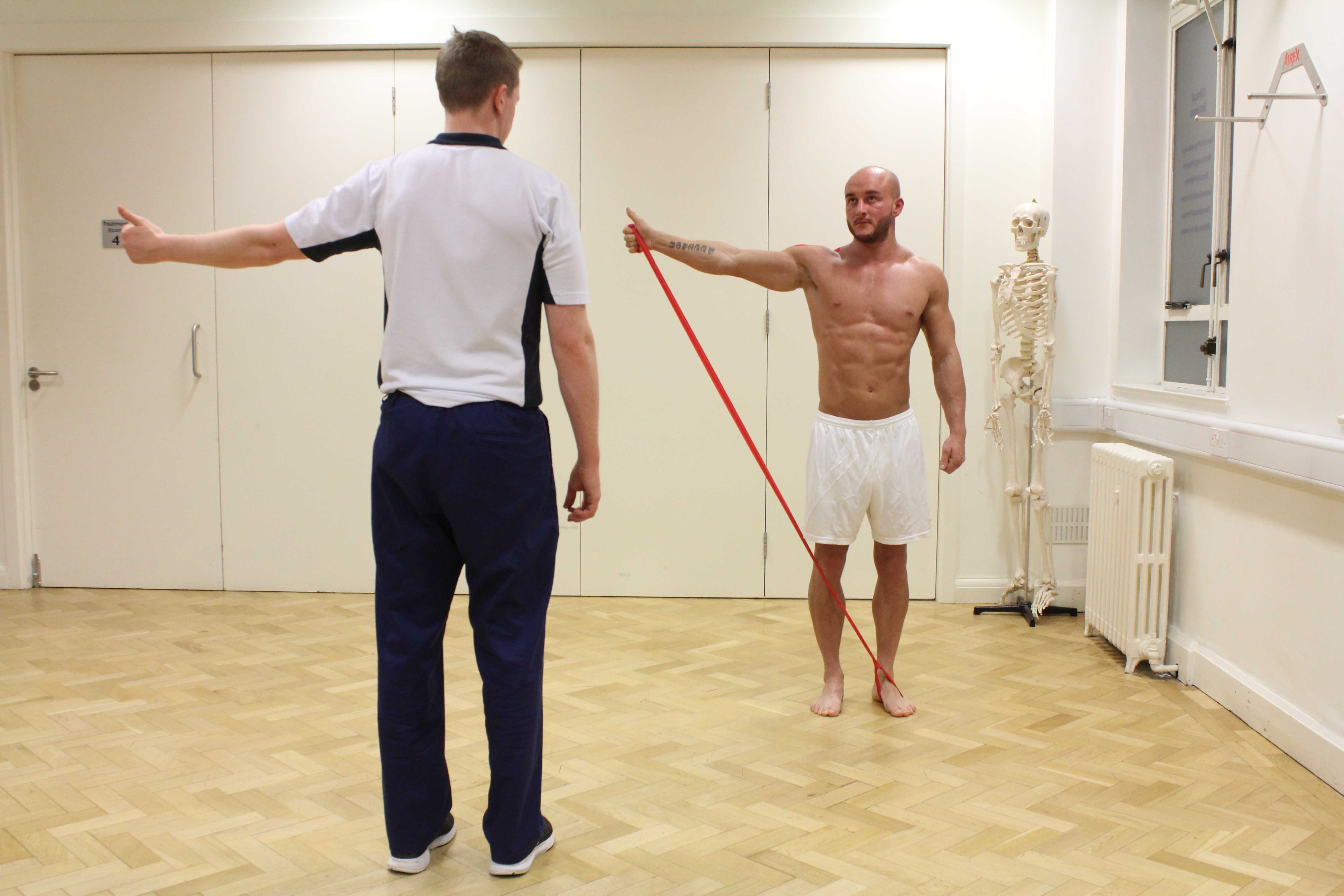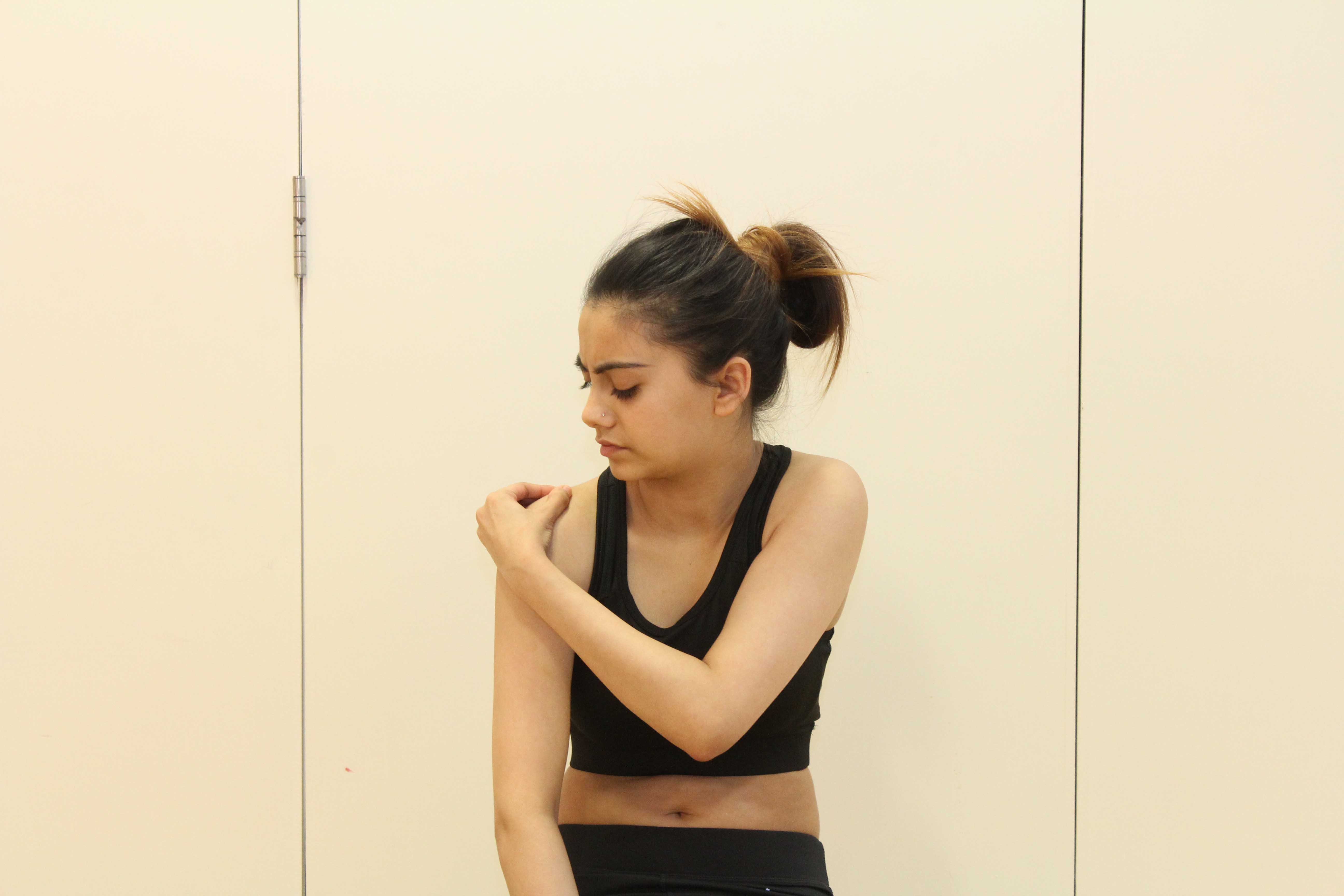What is a labral tear?
A labral tear is a tear to the labrum which can occur as a result of trauma to the shoulder. The labrum is a ring of cartilage that surrounds the head of the humerus (upper arm bone) where it meets the shoulder. This is to make the ball and socket joint more stable and allows the shoulder to achieve a greater range of movement.
 Above: Labral-tear
Above: Labral-tearWhat causes a labral tear?
A labral tear can be caused by:
- Trauma to the shoulder
- Degeneration due to age
What are the symptoms of a labral tear?
The symptoms of a labral tear can include:
- Pain on some shoulder activity
- Aching in the shoulder
- Catching/popping/locking/grinding feeling in the shoulder
- Shoulder instability/dislocations
 Above: A labral tear will require specific strengthening and even surgery in severe cases.
Above: A labral tear will require specific strengthening and even surgery in severe cases.Physiotherapy for a labral tear
Physiotherapy can be very useful in treating a labral tear and can prevent the need for surgery. There are three types of labral tears and your physiotherapist will assess you and make a diagnosis of which type of tear has occurred. The main types of tear are listed below:
- SLAP Tear – This is a tear at the top of the labrum.
- Bankart Lesion – This is a tear at the front of the labrum.
- Reverse Bankart Tear – This is a tear at the back of the labrum.
If the tear is serious or does not respond to physiotherapy then surgery is required. Rehabilitation with your physiotherapist can then take place, usually following the surgeons guidelines. This will be similar to conservative treatment in that movement and strength will gradually be increased.
Can a labral tear cause any long-term effects?
As long as the injury is treated effectively and managed carefully then a full return to activity is normal. The chance of a re-occurrence is possible, and is more likely if treated conservatively, but is generally unlikely if the rehabilitation is followed correctly.
To arrange an assessment with Physio.co.uk please contact us or call 0330 088 7800.

 0330 088 7800
0330 088 7800

































